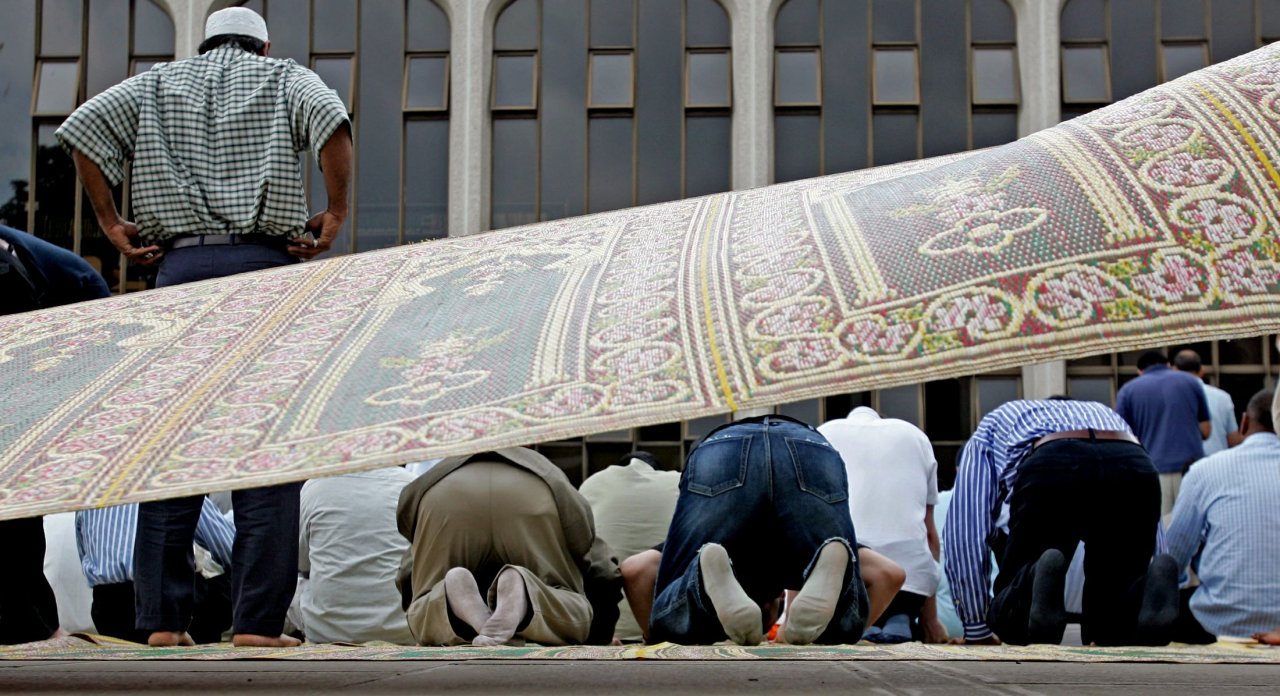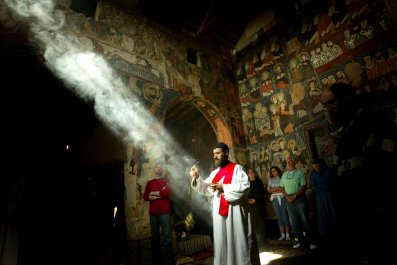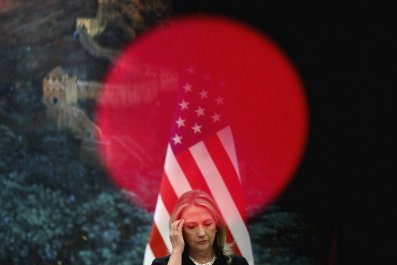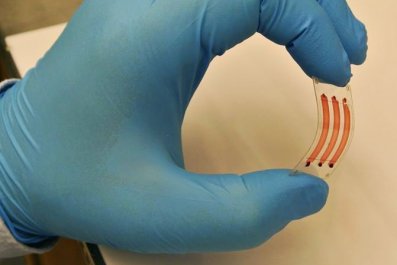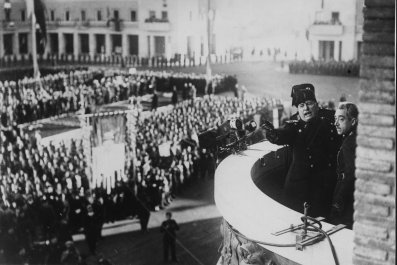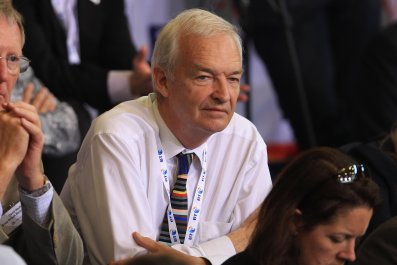The extreme views of a "racist, homophobe and anti-Semite", who supports killing non-Muslims and "stoning adulterers" are being made available to prison imams and prisoners throughout England and Wales with the blessing of the authorities, according to a former adviser to the UK government.
Haras Rafiq, managing director of the Quilliam Foundation, a counter-extremism think tank, warned that prisons have become "incubators for Islamic extremism" by allowing inmates to read the works of controversial South Asian cleric, Abul Ala Maududi. He described Maududi – who died in 1979 – as the "grandfather of Islamism".
Newsweek has discovered that hundreds of gold-laminated, hardback copies of Maududi's analyses of the Koran were distributed last month at a training event for prison imams and chaplains held at the prison service college in Rugby. The books came from the Markfield Institute for Higher Education, part of the Islamic Foundation, a UK-based organisation that publishes educational materials on Islam.
A spokesman for the commercial sales arm of the Islamic Foundation, Kube Publishing, confirmed that it does send books to the Muslim Chaplaincy, including books by Maududi, but said that it had no contracts with Her Majesty's Prison Service, and was unaware of the prison training event.
The Islamic Foundation is "inspired by the Muslim Brotherhood", according to Rashad Ali, a Counter Terrorism Interventionist for the Home Office, and is the only publishing house to have published the entire translations of commentaries on the Koran by Sayyid Qutb, who was widely cited as the scholar who most inspired the al-Qaida leader, Osama bin Laden.
Rafiq, an adviser to the UK government on combating extremism in the wake of the 2005 terrorist bombings in London, said Maududi was the "grandfather of Islamism", who called for Sharia law, an Islamic State and violent jihad.
"He was a racist, a homophobe, an anti-Semite, and a man who believed in the Hudood laws, laws that prescribe killing those who change their religion and stoning adulterers," says Rafiq. "We've got prisons allowing literature by Islamist extremists. Prisons are not restricting or filtering this literature and they are becoming incubators for Islamic extremism."
While a minority of the imams and chaplains at the event in Rugby expressed concern about the books, they were told by HM Prison Authorities that the only banned author from prison libraries is Anwar al-Awlaki, an American-born Muslim cleric who advocated violent jihad against the US, and was linked to a series of attacks including 9/11.
In one of his books, Maududi says: "There are only two methods of dealing with an apostate. Either make him an outlaw by depriving him of his citizenship and allowing him mere existence, or end his life. The first method is definitely more severe than the second, because he exists in a state in which 'he neither lives nor dies'. Killing him is preferable. That way both his agony and the agony of the society are brought to an end simultaneously."
Hannah Stuart, a research fellow at the Henry Jackson Society and an expert on extremism, terrorism and jihadi ideology, said the ideas expressed in Maududi's books are "inherently violent if not explicitly violent" and that revelations about their availability in UK prisons was "worrying".
"All jihadis have the ideas that Maududi expresses at their root," says Stuart. "His books have the same underpinning as what Islamic State are doing".
Both Rafiq and Stuart cautioned against outright censorship of Maududi's books. But Stuart described them as "incredibly powerful" and said they could lead to extremist views.
A Prison Service spokesperson from the Ministry of Justice, refuted the allegations: "We do not have a contract with this publisher. Our Muslim chaplains are experienced in identifying anything unacceptable and we actively prevent prisoners from receiving extremist material. We also have comprehensive measures in place to tackle extremism in prisons."



